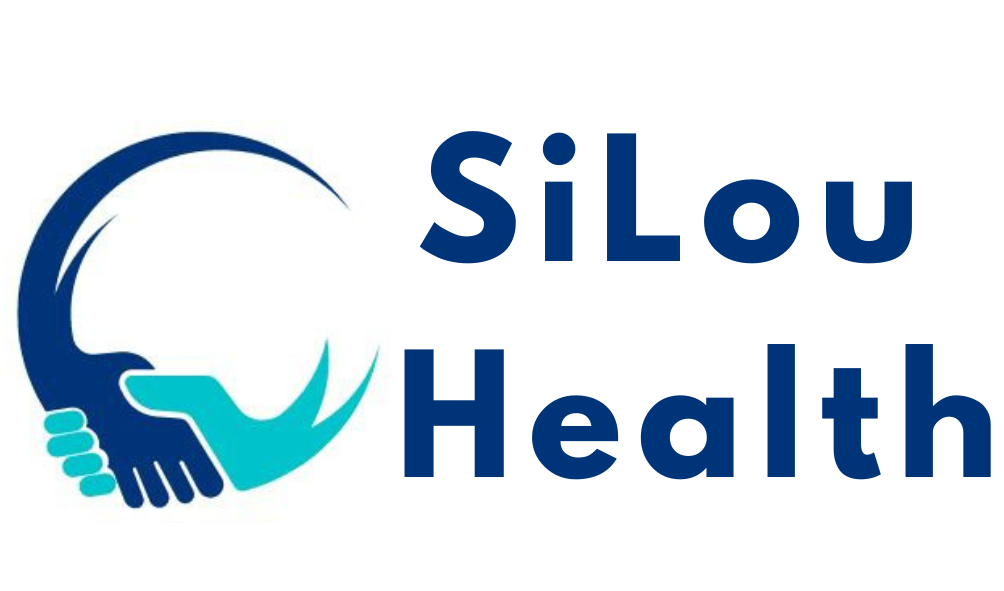Recovery Isn't Linear: What I Wish Someone Had Told Me About the Real Journey to Healing
Sep 11, 2025

If you've ever felt like you're failing at recovery because you had a bad day after several good ones, this is for you. If you've wondered why your healing journey looks nothing like the inspiring stories you see online, you're not alone. If you've been frustrated because recovery feels messier and more complicated than anyone prepared you for, let's talk about the reality behind the highlight reel.
Recovery, whether from addiction, depression, anxiety, trauma, or any other mental health challenge, is rarely the straight upward line we expect it to be. It's more like a spiral staircase where sometimes you're climbing up, sometimes you're on a landing catching your breath, and sometimes you feel like you've gone backward only to realize you're actually at a higher level than where you started.
Understanding this reality can be the difference between giving up when things get tough and recognizing that what feels like failure might actually be part of the process.
What Recovery Actually Looks Like Day-to-Day
Recovery isn't a destination you arrive at and then maintain effortlessly. It's a daily practice of choosing healing, even when that choice feels impossible some days.
Some mornings you'll wake up feeling strong and capable, ready to tackle your goals and engage with the world. Other mornings, getting out of bed will feel like a victory worth celebrating. Both experiences are valid parts of recovery.
You might have weeks where your coping strategies work perfectly, where you handle stress with grace and feel proud of your progress. Then you might have days where those same strategies feel useless, where old patterns creep back in despite your best efforts.
Recovery means learning to be okay with this inconsistency. It means recognizing that having a difficult day doesn't erase the progress you've made. It means understanding that needing extra support sometimes isn't a sign of weakness or failure.
You'll discover that recovery involves constant micro-decisions throughout each day. Choosing to reach out instead of isolating. Choosing to use healthy coping mechanisms instead of falling back on old habits. Choosing to be gentle with yourself when you don't make the "perfect" choice.
The day-to-day reality includes celebrating victories that might seem small to others but feel huge to you. Making it through a social event without overwhelming anxiety. Having a disagreement without immediately spiraling into negative self-talk. Getting through a craving without acting on it.

Why Setbacks Aren't Failures (And How to Reframe Them)
One of the biggest myths about recovery is that any step backward means you've failed or that you're back to square one. This all-or-nothing thinking can be incredibly damaging and often leads people to give up entirely when they hit inevitable bumps in the road.
Setbacks are not failures. They're information. They tell you which strategies need adjusting, which situations require extra support, and which areas of your healing still need attention. Think of them as course corrections rather than crashes.
When you have a setback, it doesn't erase all the progress you've made. If you've been in recovery for six months and have a difficult week, you don't go back to day one. You have six months of experience, tools, and growth that you didn't have before. That foundation doesn't disappear because of temporary struggles.
Reframe setbacks as learning opportunities. What triggered this particular challenge? Which warning signs did you notice or miss? What support systems were or weren't in place? This information becomes valuable for preventing similar situations or handling them better in the future.
Consider that what feels like going backward might actually be spiraling upward. You might be facing similar challenges as before, but you're handling them with more awareness, better tools, or stronger support systems. The situation might look similar from the outside, but your internal experience and response are different.
Remember that healing often involves revisiting difficult emotions or memories as you become stronger and more capable of processing them. What feels like a setback might actually be your psyche's way of knowing you're ready to work through something deeper.
The Different Types of Recovery Journeys
Recovery isn't a one-size-fits-all experience. The path that works for your friend, family member, or favorite recovery influencer might not be the right path for you, and that's completely normal.
Some people thrive in highly structured recovery programs with clear steps and regular check-ins. Others need more flexible, individualized approaches that adapt to their unique circumstances and needs.
Mental health recovery might involve therapy, medication, lifestyle changes, and ongoing self-care practices. There's no standard timeline for feeling better, and what helps one person with depression or anxiety might not help another.
Addiction recovery has multiple pathways too. Some people find success in 12-step programs, while others prefer alternative approaches like SMART Recovery, therapy-based programs, or medication-assisted treatment. Some people achieve sobriety on their first attempt, while others need multiple tries to find what works.
Trauma recovery is often particularly non-linear. Processing traumatic experiences safely takes time and skilled support. Healing might involve periods where symptoms seem worse before they get better, as you work through difficult memories and emotions.
Recovery from eating disorders, self-harm, or other behavioral patterns involves learning entirely new ways of relating to yourself and your body. This process requires patience and often involves setbacks as you practice new behaviors and thought patterns.
The key is finding the combination of approaches, support systems, and strategies that work for your unique situation, personality, and goals. What matters isn't whether your recovery looks like someone else's, but whether it's moving you toward a healthier, more fulfilling life.
Building a Support System That Actually Supports
Recovery is rarely successful in isolation. Building a strong support system is crucial, but not all support looks the same, and not everyone in your life will understand how to help effectively.
Your support system might include professional help like therapists, counselors, or doctors. It might involve peer support groups where you connect with others who understand your specific challenges. Family and friends can be crucial sources of support, though they might need guidance on how to help effectively.
Look for people who can sit with you in difficult moments without trying to immediately fix or change your experience. The most supportive people are often those who can listen without judgment and offer presence without pressure.
Be specific about what kind of support you need from different people in your life. Some friends might be great for fun distractions when you need them. Others might be better for serious conversations when you're struggling. Some family members might be helpful with practical support, while others offer emotional encouragement.
It's okay to limit contact with people who consistently undermine your recovery efforts, even if they mean well. Someone who constantly questions your treatment choices or minimizes your progress isn't providing the support you need.
Remember that your support needs might change over time. The intensive support you needed early in recovery might shift to different types of ongoing support as you develop stronger coping skills and confidence.
Don't be afraid to communicate your needs clearly to your support system. People who care about you want to help, but they might not know how unless you tell them.
Celebrating Small Wins and Redefining Success
Recovery requires redefining what success looks like. Instead of measuring progress only by major milestones, learn to recognize and celebrate the small victories that happen every day.
Success might mean using a coping skill instead of an unhealthy behavior, even if you still felt like using the old pattern. It might mean asking for help when you need it, even if that feels vulnerable or scary.
Celebrate consistency over perfection. Taking your medication every day for a week, attending therapy sessions regularly, or maintaining healthy boundaries with difficult people are all worth acknowledging.
Notice improvements in how you handle stress, even if you still feel stressed. Recovery often means you still experience difficult emotions, but you respond to them more effectively than before.
Pay attention to increased self-awareness. Recognizing your triggers, understanding your patterns, and knowing your limits are huge achievements that deserve recognition.
Acknowledge when you show up for your own life. Engaging in activities you enjoy, maintaining relationships, pursuing goals, and taking care of your basic needs are all signs of progress.
Keep track of your wins in whatever way works for you. Some people benefit from journals, others from photos, and still others from sharing victories with trusted friends or support groups.
Remember that your recovery timeline doesn't need to match anyone else's. Healing takes as long as it takes, and rushing the process often leads to additional challenges.
How to Support Someone Else's Recovery Journey
If someone you care about is in recovery, understanding these realities can help you provide more effective and compassionate support.
Avoid treating their difficult days as evidence that recovery isn't working. Instead, ask how you can support them through challenging moments and celebrate their efforts to keep going.
Don't compare their recovery to others or suggest that they should be "better" by now. Each person's healing timeline is unique, and pressure to progress faster often creates additional stress.
Learn about their specific challenges and treatment approaches so you can understand their experience better. This doesn't mean becoming their therapist, but it does mean being an informed and supportive presence.
Ask directly how you can help rather than assuming what they need. Support looks different for different people and might change depending on where they are in their recovery journey.
Take care of your own mental health and wellbeing. Supporting someone in recovery can be emotionally demanding, and you can't pour from an empty cup.
Remember that you're not responsible for their recovery success or setbacks. You can offer love, support, and encouragement, but ultimately each person's healing journey is their own responsibility.
Moving Forward With Realistic Hope
Recovery is possible, even when it doesn't look like the neat, linear story you might have expected. Understanding the real nature of healing can actually make the journey easier because you'll be prepared for the ups and downs instead of being surprised or discouraged by them.
Your recovery is unique to you. It will have its own timeline, its own challenges, and its own victories. Comparing your journey to others or to idealized versions of recovery only creates unnecessary pressure and disappointment.
Focus on progress, not perfection. Every small step forward matters, even if it doesn't feel significant in the moment. Every time you choose healing over old patterns, you're building strength for future challenges.
Be patient with the process and gentle with yourself. Recovery takes courage, commitment, and time. You're doing something incredibly brave by choosing to heal, even when it's difficult.
Remember that setbacks are temporary and don't define your overall trajectory. You have the strength to keep going, learn from challenges, and continue moving toward the life you want to build.
Your recovery story is still being written, and every day you choose to keep going is another page in that story. The journey might not be linear, but it's yours, and it's valuable exactly as it is.




